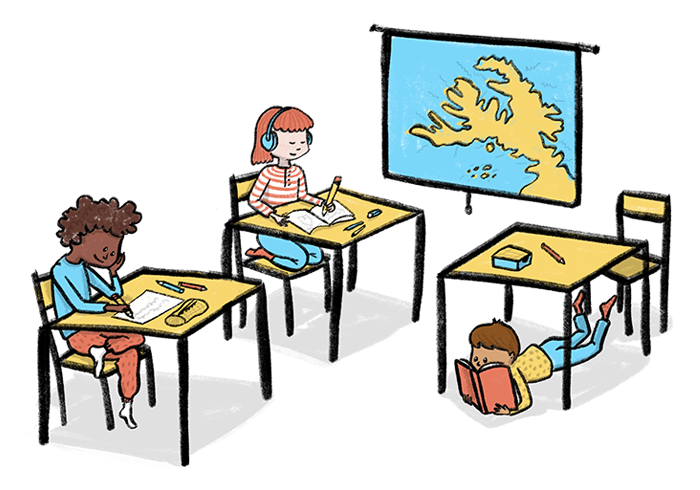Education and teaching

Reykjavík City primary schools follow the national curriculum for primary schools, with reference to the Reykjavík City Education Policy. The main objective of the Policy is for all children to grow, develop and feel happy in a democratic society that is based on human rights and respect for the diversity of human life.
Through robust school and recreation activities, children and young people gain education and experience to realize their dreams and have a positive impact on their environment and society.
Mentor
Mentor is an information system for students, parents and school staff. Guardians and students receive a Mentor password. On the family page, guardians can view their children's schedules, homework, educational assessments, attendance and more.
Curriculum plans
Curriculum plans describe the content and assessment methods, giving teachers, students and parents an overview of the curriculum.
Student assessment
All school activities are based on the focus of the national primary school curriculum and Reykjavík City's Education Policy.
In recent semesters, Rimaskóli has also implemented formative assessment in its teaching.
Teaching methods
All staff work to empower students on their own terms. The school emphasizes constructive education with ambition and respect for students, parents, and staff. The school focuses on success for all, using diverse teaching methods. The school emphasizes diverse instruction in arts and vocational subjects, sometimes integrating with other subjects.
Attendance guidelines
The school emphasizes student punctuality. All children aged 6 to 16 must attend school, and parents/guardians are responsible for their enrollment, attendance, and participation.
If attendance issues arise, parents/guardians and the school must respond. To ensure effective responses, Reykjavík's primary schools follow unified guidelines and rules.